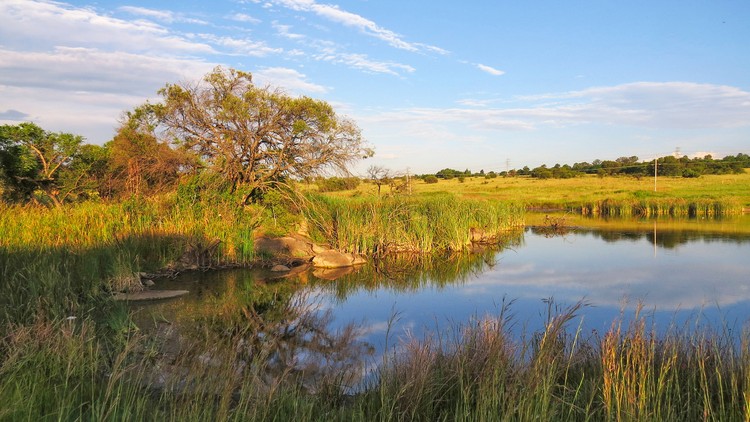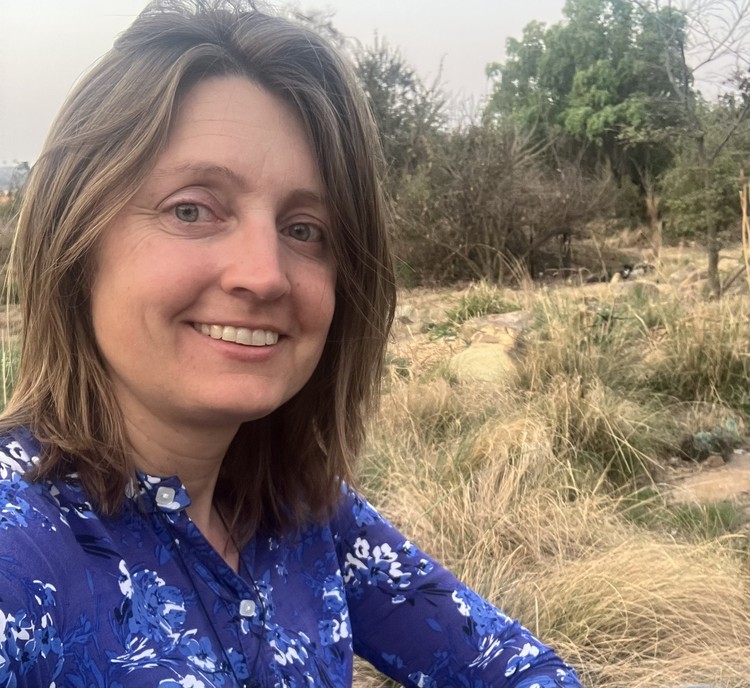Massive SLAPP suit against environmentalists withdrawn
Gauteng property developers were suing environmentalists for alleged costs from delays to their projects caused by objections
One of the wetlands affected by the Helderfontein Estate development near Midrand. Photo supplied
- Environmentalists argued that a 2021 lawsuit was a deliberate SLAPP (strategic litigation against public participation) action to discourage and silence them.
- A constitutional court ruling last year that a SLAPP defence is valid in South African law was probably a crucial factor in the developer withdrawing the case.
- The damages claim of R197 million was believed to be the biggest SLAPP suit in South Africa’s legal history.
A massive damages claim of R197 million by a property development company against environmentalists – widely acknowledged as a SLAPP lawsuit and understood to be the largest of its kind in South African legal history – has been withdrawn in the Gauteng High Court.
SLAPP is an acronym for “strategic litigation against public participation” and is described as “meritless or exaggerated lawsuits intended to intimidate civil society advocates, human rights defenders, journalists, academics and individuals, as well as organisations acting in the public interest”. In a typical SLAPP suit, the plaintiff doesn’t necessarily expect to win its case.
This lawsuit was instituted in 2021 by Century Property Developments and one of its subsidiaries, Riversands Developments, against non-profit environmental group Greater Kyalami Conservancy (GEKCO) and its chairperson, Kristin Kallesen, in her personal capacity.
Planning objections
Previously, in 2019, Kallesen had lodged several objections on behalf of the conservancy to aspects of multiple planning applications for land use changes by the developer for its proposed Helderfontein luxury township estate, and Riversands Commercial Park, near Midrand in Gauteng.
The objections related to environmental concerns about encroachment into wetlands that connect to the Jukskei River, along with other impacts of the proposed developments, and to infrastructure such as roads required to service them.
The City of Johannesburg’s planning department dismissed all the conservancy’s concerns and objections, and in October 2019 approved the developments. These approvals were then appealed by the conservancy and Kallesen, but the Municipal Appeal Tribunal refused to consider their appeals, arguing that they did not have locus standi [legal standing].
Construction of the developments subsequently proceeded.
Damages claim
However, in February 2021, the property developer filed a summons in the Gauteng High Court against Kallesen and the conservancy, claiming damages of more than R197-million as the alleged cost of delays caused by the objections. It also claimed interest at a rate of 10.5%/year from the date of summons, and punitive legal costs.
In their papers, the plaintiffs – described as “landowners and developers of vast areas of land” – acknowledged the right of public participation in the land use planning process and of objectors to lodge “bona fide and substantiated” objections or representations. But they argued that, in practice, objections and appeals caused delays that had cost implications, and that the defendants in this instance had acted in bad faith.
The developers argued that GEKCO and Kallesen had “abused” the public participation process by filing “frivolous and baseless objections” and “entirely unsubstantiated and male fides (bad faith) appeals”, resulting in “serious adverse financial implications”.
Kristin Kallesen, chairperson of the Greater Kyalami Conservancy, who was also sued by the property developers in her personal capacity. Photo supplied
Abuse of legal process
Kallesen approached the Centre for Environmental Rights (CER), for assistance, and was referred to public interest law firm Power and Associates which then represented them throughout further proceedings.
Kallesen and the conservancy filed opposing papers in May 2021, including a “special plea” that the property developers’ suit against them was clearly a SLAPP suit constituting an abuse of process.
Their papers argued that the developers did not “honestly believe that they have any prospect of recovering the amount of damages claimed from the defendants”, and that their action “violates the right to freedom of expression and environmental rights entrenched in the Constitution”.
What followed were three legal factors that effectively put paid to Century Property Developments’ damages claim.
Firstly, the plaintiffs did not actively pursue the case after the responding papers had been filed in May 2021.
Then, in what has been described as a “landmark judgment”, the constitutional court late last year confirmed the validity of a SLAPP defence in South African law. The judgment emerged from a defamation case brought by Australian mining interests against three South African environmental lawyers, two community activists and a social worker, who had also argued that it constituted an unlawful SLAPP suit.
In a third development, Kallesen and the conservancy brought a High Court review application challenging the refusal by the City of Johannesburg’s planning tribunal to acknowledge their locus standi (legal standing) in public participation forums. This case was settled by agreement in January last year, with their locus standi confirmed.
Then, on 14 January, the developers withdrew their huge summons, by agreement and with the parties all paying their own costs.
In response, Kallesen said groups like the CER and CALS (Wits University’s Centre for Applied Legal Studies) were doing “great work” to ensure that whistleblowers and activists were protected from corporate bullying, and that being linked up with Power and Associates had made the process “so much easier for us”.
GEKCO members believed their right to freedom of expression, among other rights, had been vindicated by the settlement, she said.
“These cases are intended to intimidate and, if successful, may silence activists, journalists, and whistleblowers, for example, if not opposed.
“I feel that we are one of the success stories that need to be told.”
Century Property Developments chief executive Mark Corbett was invited to comment but had not responded by the time of publication.
Support independent journalism
Donate using Payfast

© 2025 GroundUp. This article is licensed under a Creative Commons Attribution-NoDerivatives 4.0 International License.
You may republish this article, so long as you credit the authors and GroundUp, and do not change the text. Please include a link back to the original article.
We put an invisible pixel in the article so that we can count traffic to republishers. All analytics tools are solely on our servers. We do not give our logs to any third party. Logs are deleted after two weeks. We do not use any IP address identifying information except to count regional traffic. We are solely interested in counting hits, not tracking users. If you republish, please do not delete the invisible pixel.


